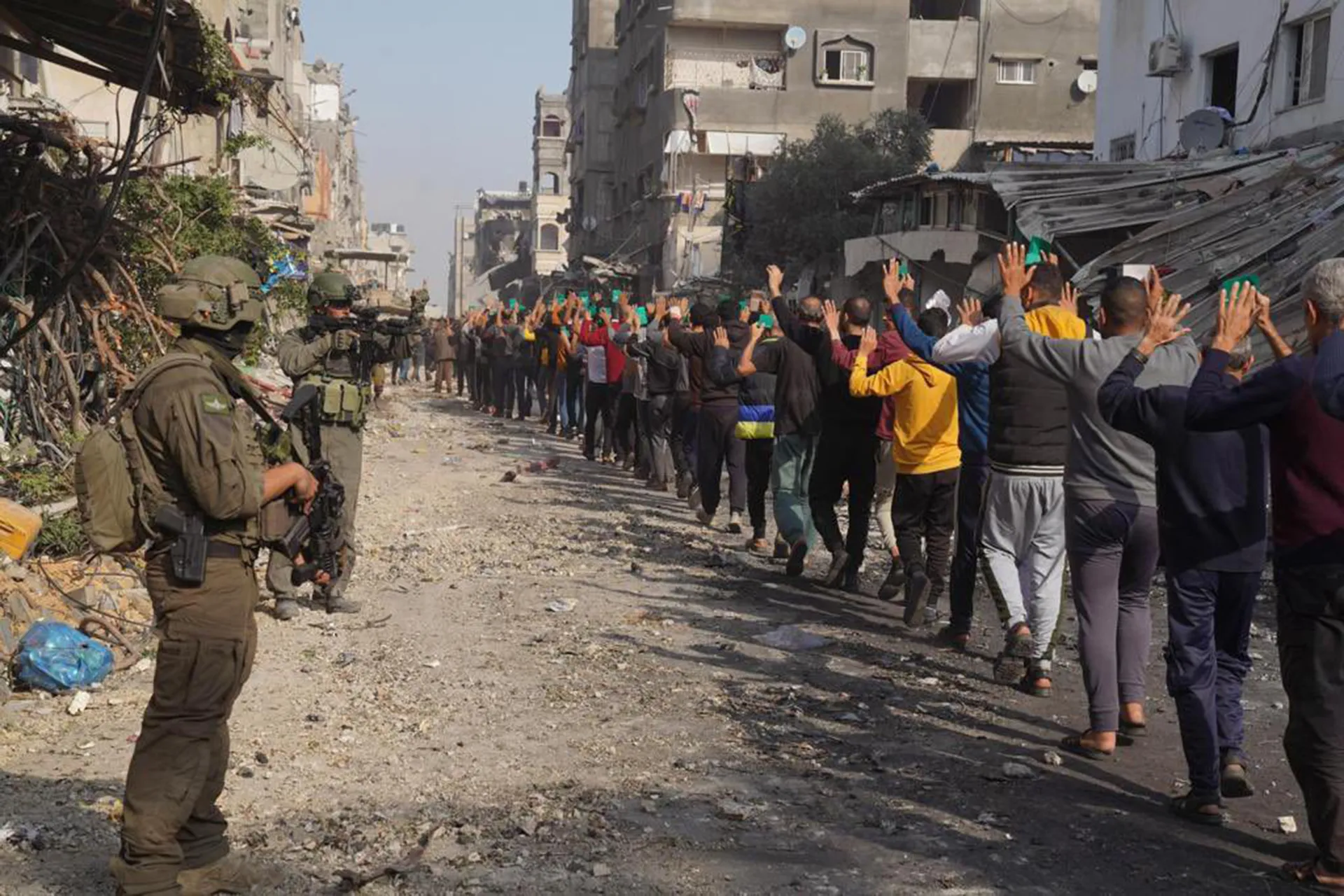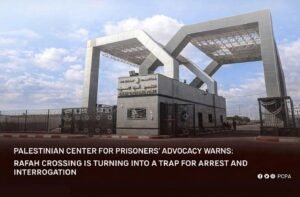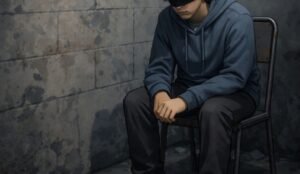Although international humanitarian law obligates the occupying power to respect the rights of detainees, the Israeli occupation authorities have, over the decades, developed a domestic legal system aimed at providing a legal cover for arbitrary detention, torture, and enforced disappearance of Palestinians. This framework flagrantly violates the Fourth Geneva Convention and the Rome Statute of the International Criminal Court.
First: Administrative Detention: The Sword of Law Without Trial
Administrative detention is one of Israel’s primary tools of repression, carried out under the British Mandate Emergency Law of 1945, which has been reactivated and modified within the Israeli legal system.
- Any Palestinian can be detained indefinitely without charge, based on a “secret file.”
- Detention orders are issued by an Israeli military commander without judicial review.
- Orders are renewed every 4 or 6 months indefinitely.
- The detainee and their lawyer are denied access to any evidence.
This practice violates Article 9 of the International Covenant on Civil and Political Rights (ICCPR) and Article 78 of the Fourth Geneva Convention.
Second: The “Unlawful Combatant” Law: Dehumanization
In 2002, the Israeli Knesset passed the “Unlawful Combatant Law,” which since October 7, 2023, has become the primary legal basis for handling detainees from the Gaza Strip.
- A Palestinian detainee can be classified as an “unlawful combatant” without proof of military activity.
- The detainee is denied basic legal and human rights, including:
- The right to know the reason for their detention
- Effective legal representation
- Family visitation
- International oversight (e.g., Red Cross visits)
This law directly violates international humanitarian law, which mandates that all civilians in conflict zones are protected under the Fourth Geneva Convention, and such protections cannot be removed arbitrarily.
Third: The Forced Feeding Law… Legalizing Torture
In July 2015, the Israeli government passed the “Forced Feeding of Hunger Striking Prisoners Law,” which allows the use of force to feed a prisoner on hunger strike, even without their consent.
- This law applies to administrative detainees who are on hunger strike in protest against their detention without charge.
- Forced feeding is considered a form of torture prohibited under the 1984 Convention Against Torture.
- The Israeli organization “Physicians for Human Rights” opposes this practice, and the international human rights community describes it as “inhuman.”
Fourth: Collective Punishment Laws Against Prisoners and Their Families
The Israeli authorities have enacted several laws and government decisions aimed at imposing collective punishment on prisoners and their families, including:
- The law allowing the confiscation of prisoners’ salaries paid by the Palestinian Authority.
- Orders for the demolition of the homes of prisoners, implemented based on military orders issued against families of prisoners accused of carrying out resistance operations.
- Revocation of residency and identity cards for Jerusalemite prisoners.
All of these measures violate the principle of individual responsibility for one’s actions, as stipulated in international human rights law.
Fifth: Legislation for the Trial of Palestinian Children
Palestinian children are often tried in Israeli military courts that lack basic guarantees for a fair trial, despite Israel’s ratification of the Convention on the Rights of the Child.
- Children are interrogated without the presence of lawyers or their relatives.
- Confessions are extracted under physical or psychological pressure.
- Harsh sentences, sometimes lasting for decades, are imposed on them.
- Israeli law, which guarantees the rights of Israeli minors, is not applied to Palestinian children, entrenching blatant legal discrimination.
Sixth: Trial of Prisoners in Military Courts
The vast majority of Palestinian prisoners are tried in Israeli military courts operated by the army, which are held in settlements built on the occupied West Bank, such as “Ofer” and “Salem.”
- The conviction rate in these courts reaches 99%.
- Detainees are often denied access to independent lawyers.
- Confessions extracted under pressure are used as primary evidence in issuing verdicts.
Seventh: National Security Exceptions and Legalizing Torture
Under the interpretation of the Israeli “Shabak” security service and the Israeli Supreme Court, the use of “physical pressure” during the interrogation of Palestinian prisoners in cases classified as “security threats” is allowed, effectively legalizing torture.
- The Supreme Court has rejected decisions obligating “Shabak” to completely stop using these methods.
- Israeli oversight bodies view these violations as “security necessities” rather than crimes.
Recommendations from the Palestinian Center for Prisoners Advocacy:
The laws and regulations of the Israeli occupation regarding Palestinian prisoners and detainees do not adhere to a fair and neutral legal system but are used as tools for organized repression and targeting, in complete contradiction with:
- The four Geneva Conventions
- The Rome Statute of the International Criminal Court
- Anti-Torture Conventions
- The International Covenant on Civil and Political Rights
The Palestinian Center for Prisoners Advocacy condemns this unjust legal system and calls for:
- The formation of international fact-finding committees to review the Israeli judicial system’s handling of prisoners.
- Including Israeli occupation leaders and military and judicial officials in international accountability lists.
- Launching an international legal campaign to expose and dismantle Israeli repressive laws that undermine the humanitarian and legal foundations of protection in times of occupation and conflict.





